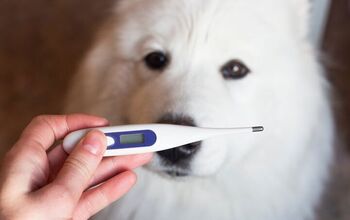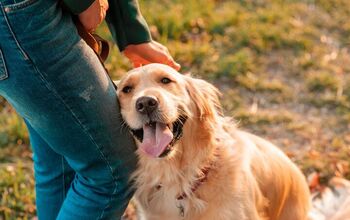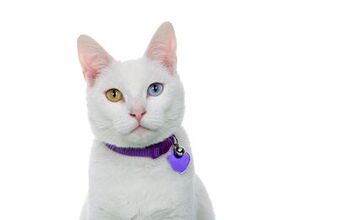How to Tell If a Dog Is Dehydrated?

Summer is in full swing, and drinking plenty of water is very important for everyone – our dogs included. Dehydration in dogs is a very serious condition that can lead to many health issues if it is not addressed promptly. Recognizing the signs of dehydration early can make a significant difference in your dog’s well-being. So here are the basic things to know, including symptoms, causes, and preventative measures.
How to Tell If a Dog Is Dehydrated?
When it comes to spotting signs of all health issues in dogs, it all boils down to being attentive and making sure you don’t miss any cues from your pooch. Knowing the symptoms of dehydration in dogs will help you tremendously as you’ll know precisely what to look for, ensuring a quick response and timely treatment for your four-legged bestie.
#1 Dry nose and gums:
One of the first noticeable signs of dehydration in dogs is a dry nose and gums. Normally, a dog’s nose should be moist, and the gums should be pink and moist as well. But if you notice that your pet’s nose and gums are dry, it could be an indication of dehydration.
#2 Loss of skin elasticity:
Skin elasticity is a key indicator of hydration levels. Gently pinch the skin on the back of your dog’s neck or between the shoulders. In a well-hydrated doggo, the skin should quickly return to its normal position. If the skin, however, stays tented or takes a long time to go back, it is a sign of dehydration.
#3 Sunken eyes:
Dehydration can cause a dog’s eyes to appear sunken and lack their usual brightness. This is a more severe symptom and indicates that the dehydration has been ongoing or is at a critical level.
#4 Lethargy and weakness:
Dehydrated dogs often show signs of lethargy and weakness. They might be less active than usual, unwilling to play, or have difficulty standing or walking.
#5 Panting or rapid breathing:
While panting is normal for dogs, excessive panting or rapid breathing can be a symptom of dehydration, especially if it is not related to any recent physical activity or high outside temperatures.
#6 Dry and sticky saliva:
Dehydrated dogs may have thick, sticky saliva instead of the usual watery type. This is a noticeable change that can indicate your dog needs more fluids.
It is important to remember that there can be various causes of dehydration, and one needs to consider all of them. For example, the main cause of dehydration in dogs tends to be inadequate water intake. Dogs may not drink enough water due to many reasons, such as stress, illness, or changes in their environment. Make sure that they always have a source of fresh water, even if you are outside. If your dog isn’t too keen on drinking water, try encouraging them with a pet water fountain – moving, fresh water tends to have a better taste and the novelty of the fountain usually motivates dogs to drink more than they usually do.
Of course, high temperatures and vigorous exercise can lead to a loss of fluids through panting and sweating (through their paws). When the weather is hot or after particularly straining activities, be sure to offer water more frequently and be more vigilant about noticing signs of dehydration, as it is more likely to happen in these circumstances. In addition to upping your pet’s fluid intake, you should also help cool them off to prevent dehydration during summer – a cooling bandana and a portable water bottle for dogs are the perfect accessories to have with you on those long walks and hikes when the temperatures soar.
In the end, there is a lot you can do to make sure dehydration never happens. Preventing dehydration in dogs involves ensuring they have continuous access to fresh water and taking precautions during hot weather or periods of increased physical activity. When you are at home, check their water bowl frequently and refill it if needed. Also, keep an eye out and observe how much water your pet drinks. If there is a decrease in water intake, consult your vet. Of course, it goes without saying that you should promptly seek veterinary assistance if you notice any of the signs of dehydration in your dog. A quick response can make a major difference.

A proud mama to seven dogs and ten cats, Angela spends her days writing for her fellow pet parents and pampering her furballs, all of whom are rescues. When she's not gushing over her adorable cats or playing with her dogs, she can be found curled up with a good fantasy book.
More by Angela Vuckovic

























